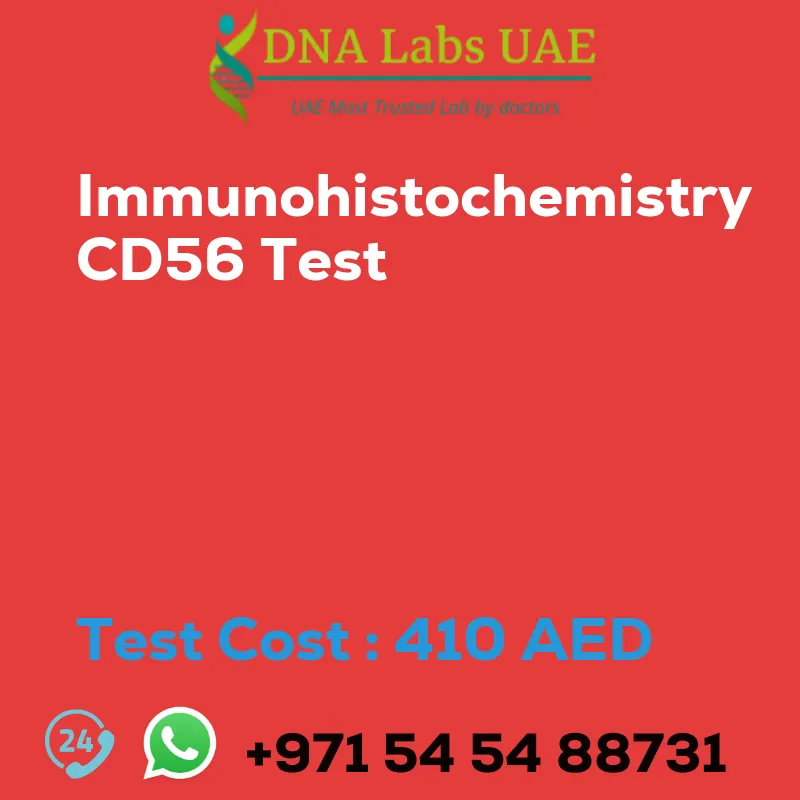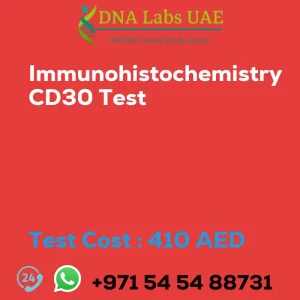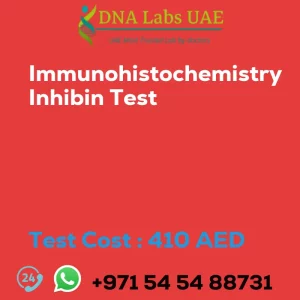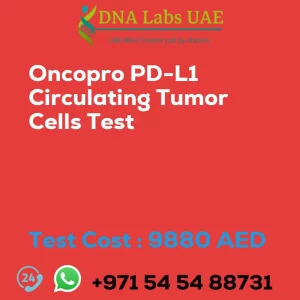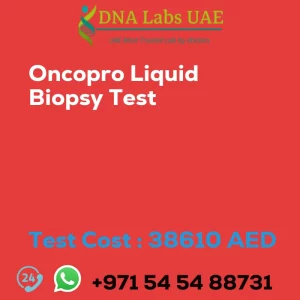IMMUNOHISTOCHEMISTRY CD56 Test
Test Name: IMMUNOHISTOCHEMISTRY CD56 Test
Components: CD56 protein detection
Price: 410.0 AED
Sample Condition: Submit tumor tissue in 10% Formal-saline OR Formalin fixed paraffin embedded block. Ship at room temperature. Provide a copy of the Histopathology report, Site of biopsy and Clinical history.
Report Delivery: Sample Daily by 6 pm; Report Block: 5 days, Tissue Biopsy: 5 days, Tissue large complex: 7 days
Method: Immunohistochemistry
Test Type: Cancer
Doctor: Oncologist, Pathologist
Test Department: DNA Labs UAE
Pre Test Information: Provide a copy of the Histopathology report, Site of biopsy and Clinical history.
Test Details
Immunohistochemistry CD56 test is a diagnostic test used to detect the presence of CD56 protein in tissue samples. CD56, also known as neural cell adhesion molecule (NCAM), is a glycoprotein found on the surface of various cells, including natural killer cells, T cells, and neuronal cells. The test involves staining tissue sections with a specific antibody against CD56. This antibody binds to the CD56 protein, allowing for its detection and visualization under a microscope.
The presence or absence of CD56 staining in the tissue can provide valuable information about the type and origin of the cells present. Immunohistochemistry CD56 test is commonly used in the diagnosis and classification of various tumors, including neuroendocrine tumors, small cell lung cancer, and certain types of leukemia and lymphoma. It can help differentiate between different types of tumors and guide treatment decisions.
The test is performed on formalin-fixed, paraffin-embedded tissue samples obtained through biopsy or surgical resection. The tissue is cut into thin sections, mounted on slides, and then subjected to a series of steps, including deparaffinization, antigen retrieval, blocking, primary antibody incubation, secondary antibody incubation, and visualization.
The results of the immunohistochemistry CD56 test are typically reported as positive or negative, indicating the presence or absence of CD56 staining in the tissue. The intensity and pattern of staining may also be noted, which can provide additional information about the expression of CD56.
It is important to note that the interpretation of immunohistochemistry CD56 test results should be done by a trained pathologist who can take into account the clinical history and other relevant diagnostic information. The test is just one component of a comprehensive diagnostic evaluation and should be interpreted in conjunction with other tests and clinical findings.
| Test Name | IMMUNOHISTOCHEMISTRY CD56 Test |
|---|---|
| Components | |
| Price | 410.0 AED |
| Sample Condition | Submit tumor tissue in 10% Formal-saline OR Formalin fixed paraffin embedded block. Ship at room temperature. Provide a copy of the Histopathology report, Site of biopsy and Clinical history. |
| Report Delivery | Sample Daily by 6 pm; Report Block: 5 days Tissue Biopsy: 5 days Tissue large complex : 7 days |
| Method | Immunohistochemistry |
| Test type | Cancer |
| Doctor | Oncologist, Pathologist |
| Test Department: | |
| Pre Test Information | Provide a copy of the Histopathology report, Site of biopsy and Clinical history. |
| Test Details |
Immunohistochemistry CD56 test is a diagnostic test used to detect the presence of CD56 protein in tissue samples. CD56, also known as neural cell adhesion molecule (NCAM), is a glycoprotein found on the surface of various cells, including natural killer cells, T cells, and neuronal cells. The test involves staining tissue sections with a specific antibody against CD56. This antibody binds to the CD56 protein, allowing for its detection and visualization under a microscope. The presence or absence of CD56 staining in the tissue can provide valuable information about the type and origin of the cells present. Immunohistochemistry CD56 test is commonly used in the diagnosis and classification of various tumors, including neuroendocrine tumors, small cell lung cancer, and certain types of leukemia and lymphoma. It can help differentiate between different types of tumors and guide treatment decisions. The test is performed on formalin-fixed, paraffin-embedded tissue samples obtained through biopsy or surgical resection. The tissue is cut into thin sections, mounted on slides, and then subjected to a series of steps, including deparaffinization, antigen retrieval, blocking, primary antibody incubation, secondary antibody incubation, and visualization. The results of the immunohistochemistry CD56 test are typically reported as positive or negative, indicating the presence or absence of CD56 staining in the tissue. The intensity and pattern of staining may also be noted, which can provide additional information about the expression of CD56. It is important to note that the interpretation of immunohistochemistry CD56 test results should be done by a trained pathologist who can take into account the clinical history and other relevant diagnostic information. The test is just one component of a comprehensive diagnostic evaluation and should be interpreted in conjunction with other tests and clinical findings. |

